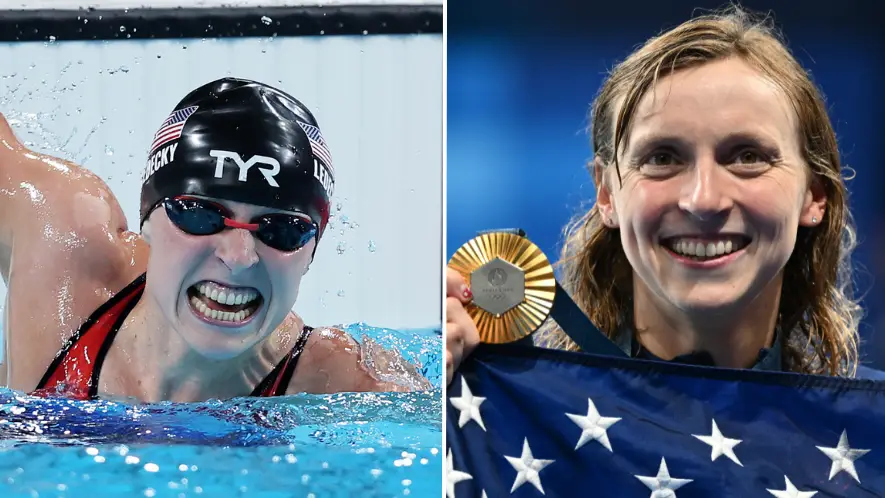
Olympic swimmer Katie Ledecky will be going home to the US with her head held high after landing two gold medals at the Paris Olympics.
As well as making the top spot for the 1,500m freestyle and 800m freestyle, she also won silver in the 4x200m freestyle relay and bronze in the 400m freestyle, which we can all agree isn’t a bad day at the office at all.
Behind the scenes, Ledecky has been battling a devastating health diagnosis, which she says has completely altered the way she competes internationally.
Her life was turned upside down back in 2015, after picking up five gold medals and setting three world records at the World Aquatics Championships in Kazan, Russia – as you do.
Advert
When she and her teammates sat down for a celebratory meal together, Ledecky began feeling 'extremely hot and lightheaded', as she recalled in her best-selling memoir, Just Add Water: My Swimming Life.

However, the swimmer initially put it down to general exhaustion, meaning it wasn’t until she turned up to the Olympic Games in Rio the following year that she became certain something was wrong.
"It was… weird," she wrote. "I was swimming okay. But I was super inconsistent. I would have a couple of good practices, and then I would have a day or two when I had absolutely no energy.
"Some days I couldn’t walk around without dizziness. I remember wrapping practice and struggling to get back to the locker room.
"Every swimmer has peaks and valleys in training, but to be so strung out?"
After her former coach Bruce Gemmell recommended she see a specialist, she was diagnosed with postural orthostatic tachycardia syndrome (PoTS), which sees patients' heart rates increase very quickly after getting up from sitting or lying down.
Ledecky explained in her book: "Because I have PoTS, I pool blood in the vessels below my heart when I stand.
"My body then releases extra norepinephrine or epinephrine, which adds additional stressors on my heart, making it beat faster. Which, in turn, bring on dizziness, fainting and exhaustion."
But she chose not to share her diagnosis at first, saying it was all about timing.

“I didn’t want something quote/unquote ‘wrong’ with me to become the narrative around Rio or Team USA,” she said.
“I wasn’t eager to become a distraction or to be distracted myself. I simply wanted to treat my condition as best I could and get back to going hard in the pool. Gradually, following doctor’s orders, I started feeling better.”
Thankfully, in some cases PoTS can be improved by lifestyle changes, which is what saved Ledecky’s competitive career.
"The good news was that I could treat my POTS nutritionally," she added.
"I needed to up my sodium intake and increase my hydration.
"Studies also show that reclined aerobic exercise, such as swimming and strengthening your core can provide relief. Which is kind of funny.
"What are the odds that the prescriptive exercise for my particular disease would be…more swimming?"
Topics: Health, Olympics, Sport, World News